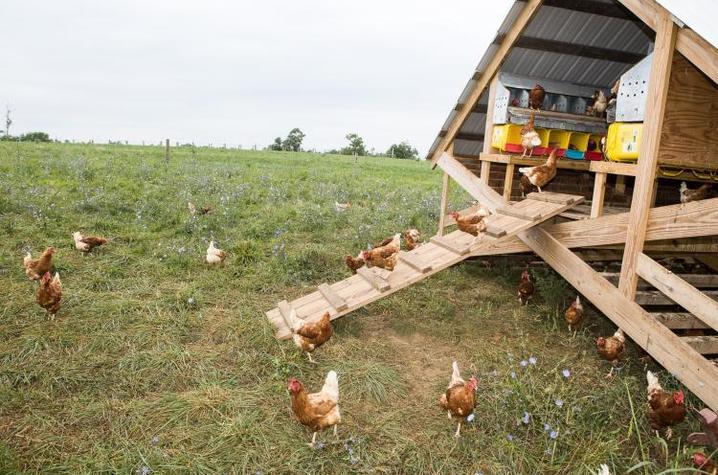UK Poultry Specialists Urge Caution Amid Avian Influenza Outbreak

LEXINGTON, Ky. (Feb. 25, 2022) — Highly pathogenic avian influenza has been detected in Kentucky. University of Kentucky College of Agriculture, Food and Environment specialists urge poultry producers, large and small, to take precautions to protect their flocks and their communities, while mitigating the spread.
“So far, Kentucky has only two counties with affected poultry facilities,” said Tony Pescatore, professor and extension poultry specialist for the UK Department of Animal and Food Sciences. “Highly pathogenic avian influenza (HPAI) is very contagious and often fatal for domesticated poultry. We want to make sure producers know how to recognize the signs of HPAI and how to report it if they suspect their birds are sick.”
At-risk birds include chickens, turkeys, pheasants, quail, ducks, geese and guinea fowl. Free-flying migratory waterfowl, such as ducks, geese and shorebirds may also carry HPAI without showing any signs of illness.
“We’ve learned that state officials have detected HPAI in waterfowl in our state,” Pescatore said. “So, it’s in the flyway, and we need to be vigilant. The Kentucky Department of Fish and Wildlife Resources ask that die-offs of wild waterfowl, shore birds, birds of prey or wild turkeys be reported to them. Die-offs of other bird species when more than five have died should be reported also. Shoes, clothing and vehicles need to be cleaned when returning from areas where there are wild birds.”
Signs of HPAI in poultry include sudden death of birds without clinical signs. Birds may exhibit respiratory signs including nasal discharge, coughing and sneezing or decreased water consumption. They may also show a lack of energy or appetite, decreased egg production or produce soft-shelled or misshapen eggs.
“It’s important to note that many of the symptoms can also be related to other more common poultry ailments,” Pescatore said.
The disease spreads through direct contact among birds and through their droppings. People may spread HPAI by moving infected birds, equipment and feed and by wearing clothing and shoes that have been in the affected areas.
“It’s a good practice to shower, wash your clothes and change your shoes before handling your birds, especially if you’ve visited friends or families with birds,” Pescatore said. “Also, take these same steps after handling your own birds if you plan to visit others who own birds. Keep your birds away from other birds.”
Anyone who notices the signs of HPAI in their birds or free-flying birds may report their findings to the U.S. Department of Agriculture Sick Bird Hotline at 866-536-7593.
As the state’s flagship, land-grant institution, the University of Kentucky exists to advance the Commonwealth. We do that by preparing the next generation of leaders — placing students at the heart of everything we do — and transforming the lives of Kentuckians through education, research and creative work, service and health care. We pride ourselves on being a catalyst for breakthroughs and a force for healing, a place where ingenuity unfolds. It's all made possible by our people — visionaries, disruptors and pioneers — who make up 200 academic programs, a $476.5 million research and development enterprise and a world-class medical center, all on one campus.




